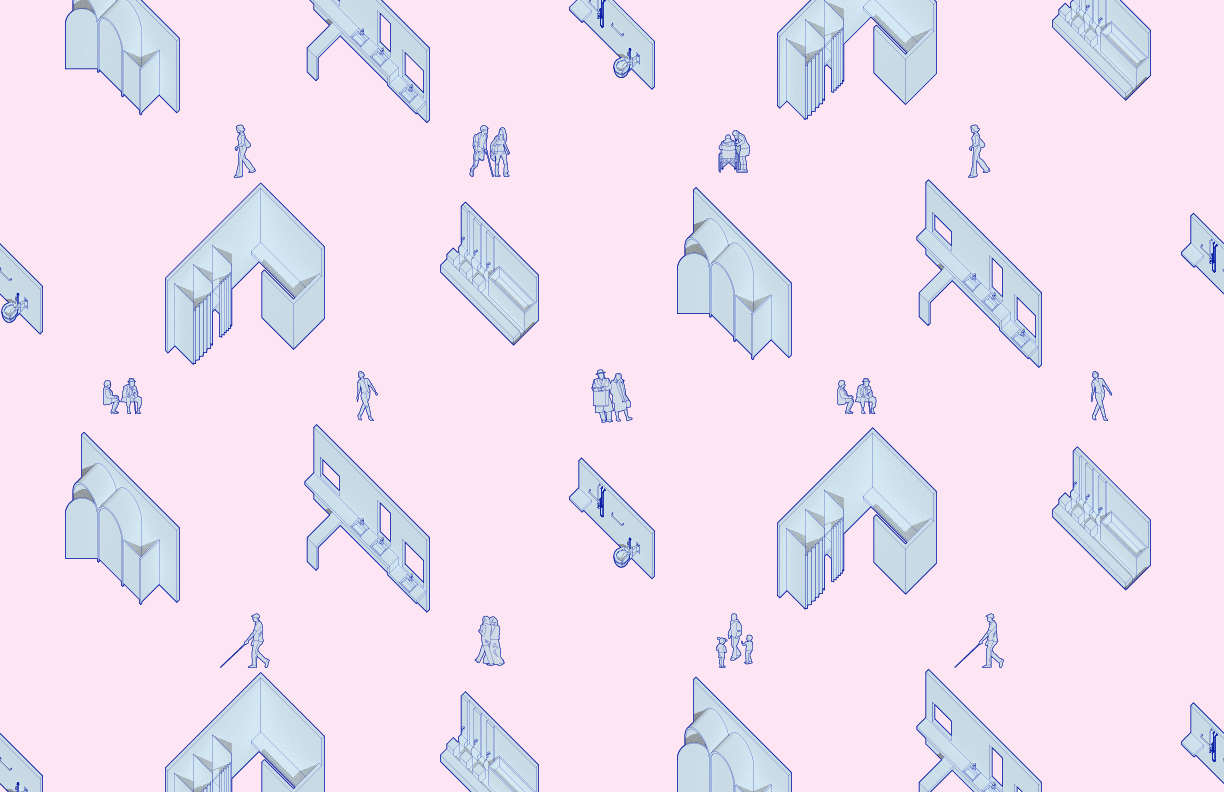
Overview:
There is an urgency to create architecture which serves its users by designing spaces that include. One of the greatest articulations of this urgency is the restroom–a fundamental and necessary space of our daily lives. We all share a universal need for a restroom, yet we have never had equal access to it.
A space that once excluded women from the public sphere still fails to serve transgender, intersex, and gender non-conforming people of the LGBTQIA+ community. This session aims to explore the complexity of gendered spaces and the role restrooms and locker rooms play in belonging.
Using an interdisciplinary approach, this session explores the histories of access, gender and space, equitable design strategies, and methods of resilience for marginalized and underrepresented groups. We advocate for the design of gender-affirming restrooms which lead to greater economic stimulation and a more equitable environment. Inclusive gender-based design changes will lead to significant outcomes, improving the experiences of many others.
Learning Objectives:
- Identify terminology for gender, gendered spaces, and the built environment to provide a universal and respectful language for colleagues and clients
- Provide an interdisciplinary analysis of the history, building code, legislation and current best practices surrounding access, gender and space–specifically with regard to local jurisdictions
- Identify strategies to discuss the economic and social value for clients and users of gender-affirming restrooms and spaces within different building typologies
- Demonstrate that gender-affirming design is a tool for resilience, strengthening community through positive health impacts, enhanced safety solutions, and overall social benefits in design projects
Presented by:
Kaitlyn Badlato, AIA, EDAC, WELL AP, LSSYB
Medical Planner, HKS
Kaitlyn Badlato is a Medical Planner at HKS Washington,D.C. She enjoys working with clients to create inclusive healthcare environments that provide comfort & a sense of belonging for all staff & patients. She believes conversation & the amplification of all voices is the most powerful tool we have for learning & growth. Kaitlyn serves as the AIA Mid-Atlantic Young Architects Regional Director and is a past chair of the AIA|DC Equity Committee by WIELD and is a founding member of the DCNOMA AIA|DC Our Forum, Our Impact collective.
Renae Mantooth, PhD, WELL AP
Sr. Design Researcher, HKS
Dr. Renae Mantooth is a Senior Design Researcher at HKS, where she integrates research efforts within the Education practice area. She also serves as an Assistant Professor of the Practice at NC State University, identifying as a "pracademic" - bridging the worlds of academia and industry towards a more evidence-based and equity-centered built future. Her work is grounded in the emancipatory nature of education. Challenging assumptions, advocating for all learners, and furthering our understanding of how the physical environment influences motivation and learning processes is the foundation for the questions she asks and the work that she does.
Julia Chou
Graduate Student, Princeton University
Research Intern, HKS
Julia Chou is a Research Intern at HKS Washington, D.C. and a graduate student at Princeton University. She is a recent graduate of the Syracuse University School of Architecture where she conducted a research project titled “Representations of Difference” on the intersection of architecture and disability, integrating the principles of disability justice with design. Julia is dedicated to conducting design-based research that challenges dominant ways of knowing architecture.
